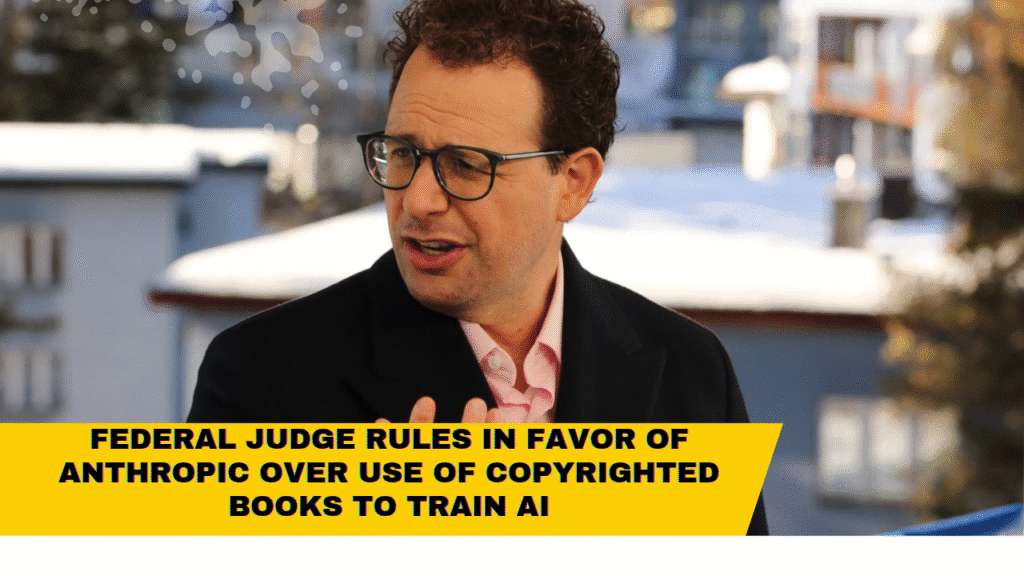In a decision that could reshape the landscape of copyright and artificial intelligence, a U.S. federal judge has ruled that AI company Anthropic was legally allowed to train its language models on published books—without asking for the authors’ permission.
Judge William Alsup handed down the ruling on Tuesday, marking the first major legal win for an AI company claiming that its use of copyrighted materials falls under the controversial fair use doctrine. And while this doesn’t mean that all similar lawsuits are now void, it does set a powerful precedent—one that could influence future rulings across the country.
A Blow to Authors and Creatives

The ruling comes as a disappointment for authors, artists, and publishers who’ve filed dozens of lawsuits against major tech companies including OpenAI, Meta, Midjourney, and Google. At the heart of many of these cases is the question: Can AI companies legally scrape and learn from copyrighted content without the creator’s consent?
Fair use is a tricky part of copyright law, often subject to the judge’s interpretation. And because the current legal language hasn’t been updated since 1976—long before the internet or generative AI—it leaves plenty of room for debate.
Generally, fair use is determined by four main factors:
- The purpose of the use (educational or parody uses often fare better)
- The nature of the original work
- The amount and significance of the portion used
- And whether the use affects the market value of the original
AI companies have argued that training models on text—even entire books—is transformative and thus falls under fair use. Until now, courts hadn’t clearly agreed. Judge Alsup’s ruling in Bartz v. Anthropic changes that.
Piracy Still Under Scrutiny
But the win for Anthropic isn’t total.
While the judge said training on the books constituted fair use, the case isn’t over. The court will still move forward with a trial over how Anthropic obtained those books in the first place.
According to the lawsuit, the company allegedly created a digital “central library” that aimed to store “all the books in the world”—and do so “forever.” The problem? Plaintiffs claim millions of those books were illegally downloaded from pirate sites, a clear violation of copyright law.
So while the training itself may have been deemed lawful, the method of acquisition is still under legal fire.
What This Means Going Forward
This case could be a turning point—not just for Anthropic, but for the entire AI industry.
If other courts follow Judge Alsup’s interpretation, tech companies might gain more freedom to train their AI systems on copyrighted works. That could accelerate innovation—but also deepen tensions between creatives and corporations profiting from their work.
As legal battles continue, one thing is clear: the conversation around AI, ethics, and copyright is only just beginning.
Also Read : Canada Says China-Linked Hackers Breached Telecom Networks in Espionage Campaign

